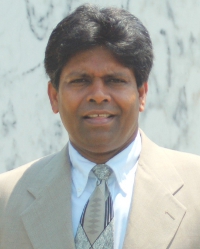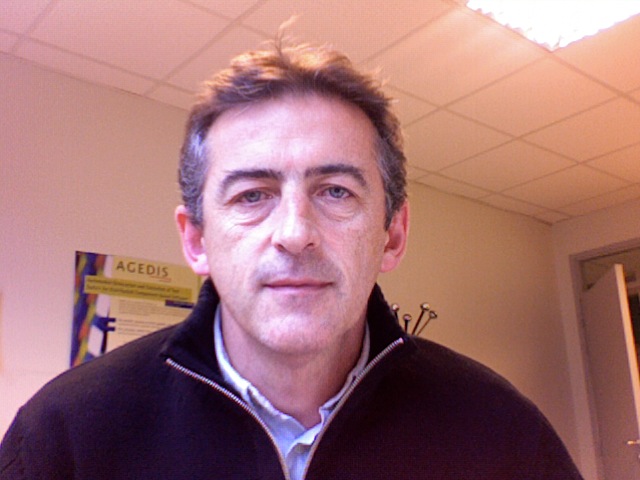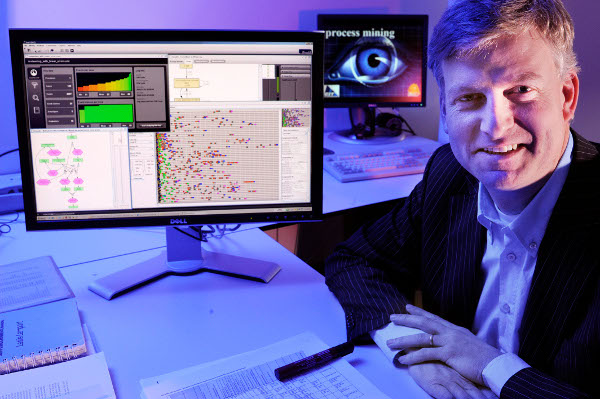| Automated Simulink/Stateflow Testing and Some Recent Directions | |
|---|---|
 Ratnesh Kumar Ratnesh Kumar
|
Abstract: In many application domains, Simulink/Stateflow serves as a platform for model-based development of the reactive embedded code, that interacts with its environment in real-time fashion. The talk will discuss a model-based approach for testing Simulink/Stateflow code, based on its automated translation to input-output extended finite automaton (I/O-EFA), followed by automated test-generation, guaranteeing user-defined code as well as requirements coverage, and also support for automated test-execution and error-localization. The I/O-EFA translation further supports other model-based analysis, as verification and synthesis. Synthesis using supervisory control has faced a limit for not being “prescriptive”. The talk will also briefly touch upon a prescriptive, directed control, proposed by the author. To end, the talk will describe author’s some new line of work on soil-sensing for sustainable agriculture and nitrogen-cycle management.
Biography: Ratnesh Kumar is a Professor of Electrical & Computer Engineering at the Iowa State University since 2002. He received B.Tech. in Electrical Eng. from Indian Institute of Technology, Kanpur (IITK) in 1987, and M.S. and Ph.D. in Electrical & Computer Engineering from the Univ. of Texas, Austin (UTAustin) in 1989 and 1991, respectively. Ratnesh's research interest spans sensors, networks, controls and software with application domains of cyberphysical (hybrid) systems, embedded and real-time systems, model-based software and web-services, power systems and precision farming. Ratnesh received Gold Medals from IITK, MCD Fellowship and Dissertation Award from UTAustin, Fellowships from NASA-Ames, ARL-PSU and INL, and several awards from NSF including the Research Initiation Award. Ratnesh is a Fellow of the IEEE for contributions to discrete event system modeling, control, diagnosis and applications. |
| Model-based conformance test generation for timed systems | |
|---|---|
 Thierry Jéron Thierry Jéron
|
Abstract: The talk presents the main principles of automatic test generation for timed automata models. We consider the model of timed automata with inputs/outputs (TAIOs), an extension of timed automata, well suited for the specification of systems with both timing constraints and interaction with their environment. We review the underlying testing theory tioco which extends the classical ioco theory to the timed context. Test generation from TAIOs is then explained, with in particular the underlying problem of partial observation for a priori non-deterministic and even non-determinizable models.
Biography: Thierry Jéron obtained a B.Sc in Mathematics (1986), an M.Sc in Mathematics and a M.Sc in Computer Science (1988) from the University of Rennes 1, a Ph.D. in Computer Science (1991) in the IRISA/INRIA laboratory, and an Habilitation in 2004. From 1991 to 1992, he was a research engineer in the Alcatel Research Lab in Marcoussis near Paris. From 1993 to 2005, he was an INRIA Research Scientist in the INRIA Rennes Lab, and since 2006 an INRIA Research Director. He has been the scientific leader of the Vertecs INRIA team from 2001 to 2012, and is currently member of the Sumo team. His research interests are formal methods and tools for the behavioral analysis of reactive systems, in particular verification, diagnosis, testing, and more recently runtime verification. |
| In or Out of Control ? – Process Mining from Discrete Events | |
|---|---|
 Wil van der Aalst Wil van der Aalst
|
Abstract: Recent breakthroughs in process mining research make it possible to discover, analyze, and improve operational processes based on event data. (See the movie: Introduction to Process Mining). The incredible growth of discrete events recorded by a variety of systems provides many opportunities for process mining. However, the increasing Volume, Velocity and Variety (the 3V’s characterizing Big Data) of event data create new challenges. In some applications it may be impossible or undesirable to store all events. Moreover, process mining should provide immediate answers. While driving a car, one is interested in the current and predicted traffic jams rather than long-term averages. Similarly, on-the-fly process mining should provide operational support without requiring excessive amounts of storage space and computing power. In his keynote, Prof. Van der Aalst will show that process mining can be used to diagnose when systems are out-of-control and suggest actions to stay in control. Moreover, he will show that on-the-fly process mining and powerful problem decompositions are indeed possible.
Biography: Prof.dr.ir. Wil van der Aalst is a full professor of Information Systems at the Technische Universiteit Eindhoven (TU/e). He is also the Academic Supervisor of the International Laboratory of Process-Aware Information Systems of the National Research University, Higher School of Economics in Moscow. Moreover, since 2003 he has a part-time appointment at Queensland University of Technology (QUT). His research interests include workflow management, process mining, Petri nets, business process management, process modeling, and process analysis. Many of his papers are highly cited (he has an H-index of more than 103 according to Google Scholar, making him the European computer scientist with the highest H-index) and his ideas have influenced researchers, software developers, and standardization committees working on process support. |
